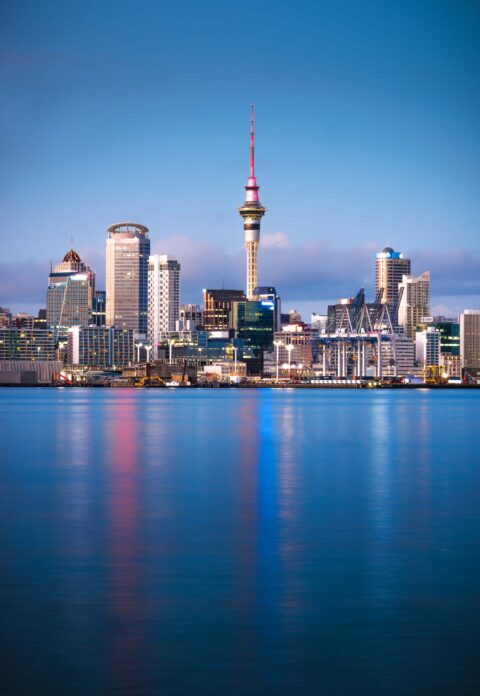Laura Houldsworth is the Managing Director & Vice President for Asia Pacific at Booking.com, which is one of the world’s leading digital travel companies. WOMAN asks Laura some questions on her personal interest in travel and Asia Pacific, why sustainable travel is important for the industry’s future, and her top tips for adopting a regenerative mindset when it comes to touring a country.

Can you tell us about your background and how you came to be the Managing Director of Booking.com in APAC?
As Managing Director of Asia Pacific at Booking.com, I lead and oversee business growth, operations and strategy
for the region. I have the unique opportunity to celebrate the different and diverse cultures across the APAC region; I love working alongside the experts at Booking.com to make travel more inclusive and sustainable for everyone visiting APAC countries.
I’ve always had an innate interest in travel and culture so was thrilled to join Booking.com in 2021. Having lived in Singapore for 18 years, and with more than almost two decades worth of experience across Asia Pacific, Japan, and China, I love the aspect of working with multicultural teams and bringing people from different backgrounds together to achieve success.

What advice would you give to women who aspire to be in a leadership position?
Be who you are, trying to be someone else is exhausting and will not make you happy even if you get there. While being yourself, be clear about what you want and where you’d like to be and do not get discouraged if you face challenges along the way. Setbacks make you stronger. I have faced difficulties when I am not deemed to be what others believe I need to be, I focus on proving that there is more than one way to be successful.
Cost vs Conscience: in light of the recent Travel Sustainable report by Booking.com, what are the biggest challenges Kiwis face when balancing the need to cut down on spending, with the need to make a sustainable choice?
Efforts to be more sustainable are top of mind for nearly two thirds (68%) of Kiwi travellers who believe we need to act now to make more sustainable choices for future generations. Kiwis are more likely (60%) than global travellers (49%) to believe the environment will get worse in the next six months, demonstrating the high priority travellers from Aotearoa are putting on how their decisions impact the world around them as they explore it.
However, we see a tension point where over half of Kiwis (58%) also believe more sustainable travel options are too expensive (up 12% from Booking.com’s 2022 data). For these respondents, sustainability and travel combined can seem non-urgent when they are worried about bill-shock.
An increasing number of travellers feeling the pinch are seeking more sustainable travel options rich in rewards, highlighting the perceived trade-off between making conscious choices, saving money and the need for incentivisation. Over half (56%) are seeking out more discounts and economic incentives when choosing eco-friendly options.

Why is being sustainable important for you and Booking.com?
Sustainability is a core component of Booking.com’s mission to make it easier for everyone to experience the world – now and in the years to come. We are committed to this journey and the collaborative relationships that will drive real impact and change industry wide.
As a leader in travel, we believe we have a responsibility to preserve and build a world worth experiencing, and to help promote a more sustainable travel industry – culturally, environmentally and socio-economically. If done with respect for the world’s communities, environments and biodiversity, travel can broaden horizons, reduce barriers and bring people closer together.
What are your 3 tips for being a more sustainable traveller day to day?
Travellers are becoming more responsible consumers by increasingly adopting a regenerative mindset to travel whilst also seeking credible assurance when booking across the entire travel experience. My top 3 tips for embracing this regenerative mindset to travel are:
- Get off the beaten track – being mindful when choosing your next trip can help reduce overtourism, which can be a major issue for fragile environments, ecosystems and local communities. Consider travelling to a location just outside a busy sightseeing area, travel in the off-peak season when there are fewer other visitors or to a lesser-known location. By travelling off the beaten track, you’ll meet more locals and experience authentic culture (plus being able to take far more unique-looking holiday photographs).
- Support the local economy and buy locally – when you travel, one of the best ways to support the local economy and limit your carbon footprint is to shop locally, eating food from street vendors or at restaurants that use sustainably sourced produce.. And if you’re cooking for yourself, try to purchase your produce from local markets.
- Book an eco-conscious accommodation – Your accommodation can make all the difference – when booking your accommodation, try to pick somewhere eco-conscious. With the wide variety of stays available, finding one that meets your needs and budget is easier than you think. Look for a listing that has energy-saving measures and water-saving practices in place (whether that’s reusing towels, having water-saving shower heads, etc). You can also avoid single-use plastic waste by bringing your own toiletries instead of using the ones supplied.
If you could travel anywhere in the world tomorrow, where would it be?
I feel like I am on the road (or in the air) most of the time so tomorrow I would not mind being at home! But one place that is high on my list of places to visit is Rwanda to see the gorillas. I would love to see these gentle giants in their own habitat that is fiercely protected by conservation organisations. Tourism is an important industry for many African countries and so we need to ensure that the communities and environment are protected.
Related Article: Visiting The Cook Islands Feels Like Home








